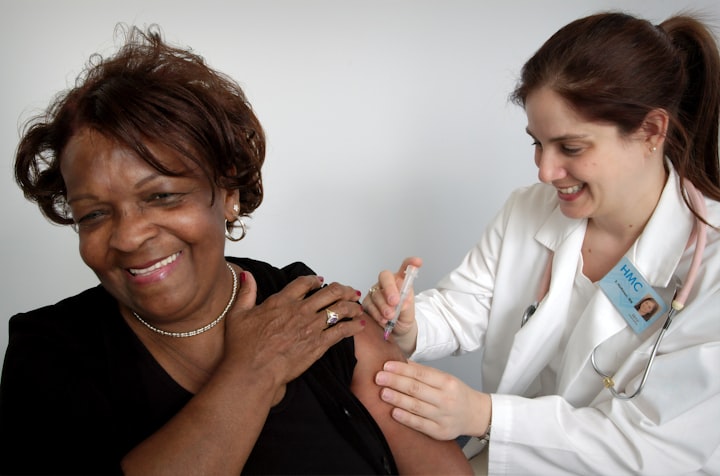developing a cure for covid 19
do we have a cure for the coronavirus
COVID-19 Vaccine
As the new coronavirus continues to spread, people around the world are anxious to know when we might have a vaccine to stop it.
What Would a COVID-19 Vaccine Do?
When you come into contact with viruses or bacteria, your body’s immune system makes antibodies to fight them off.
A vaccine forces your immune system to make antibodies against a specific disease, usually with a dead or weakened form of the germs. Then, if you come into contact with them again, your immune system knows what to do. The vaccine gives you immunity, so you don’t get sick or so your illness is much milder than it otherwise would have been.
The Beijing-based drug maker’s vaccine, called CoronaVac, induced neutralizing antibodies in “above 90%” of people who were tested 14 days after receiving two injections, two weeks apart. There were no severe side effects reported, the company said in a statement.
The preliminary results were from a 600-patient, placebo-controlled Phase 2 study. Sinovac is also conducting a 143-patient, placebo-controlled Phase 1 study.
There are currently more than two dozen research efforts underway to develop protective vaccines against the novel coronavirus that causes Covid-19. In May, Moderna, a Cambridge, Mass.-based biotech firm, announced early and encouraging immune-response results for its experimental Covid-19 vaccine — although vaccine experts criticized the company for not disclosing enough detailed data. More information
Here’s Exactly Where We Are with Vaccines and Treatments for COVID-19
Written by Shawn Radcliffe on June 10, 2020 — Fact checked by Jennifer Chesak
Scientists around the world are working on a number of vaccines and treatments for COVID-19. Xinhua/Zhang Yuwei via Getty Images
Scientists around the world are working on potential treatments and vaccines for the new coronavirus disease known as COVID-19.
Several companies are working on antiviral drugs, some of which are already in use against other illnesses, to treat people who already have COVID-19.
Other companies are working on vaccines that could be used as a preventive measure against the disease.
With confirmed COVID-19 cases worldwide surpassing 6.4 million and continuing to grow, scientists are pushing forward with efforts to develop vaccines and treatments to slow the pandemic and lessen the disease’s damage.
Some of the earliest treatments will likely be drugs that are already approved for other conditions, or have been tested on other viruses.
“People are looking into whether existing antivirals might work or whether new drugs could be developed to try to tackle the virus,” said Dr. Bruce Y. Lee, a professor at the CUNY Graduate School of Public Health & Health Policy.
Here’s Exactly Where We Are with Vaccines and Treatments for COVID-19
Written by Shawn Radcliffe on June 10, 2020 — Fact checked by Jennifer Chesak
Scientists around the world are working on a number of vaccines and treatments for COVID-19. Xinhua/Zhang Yuwei via Getty Images
Scientists around the world are working on potential treatments and vaccines for the new coronavirus disease known as COVID-19.
Several companies are working on antiviral drugs, some of which are already in use against other illnesses, to treat people who already have COVID-19.
Other companies are working on vaccines that could be used as a preventive measure against the disease.
With confirmed COVID-19 cases worldwide surpassing 6.4 million and continuing to grow, scientists are pushing forward with efforts to develop vaccines and treatments to slow the pandemic and lessen the disease’s damage.
Some of the earliest treatments will likely be drugs that are already approved for other conditions, or have been tested on other viruses.
“People are looking into whether existing antivirals might work or whether new drugs could be developed to try to tackle the virus,” said Dr. Bruce Y. Lee, a professor at the CUNY Graduate School of Public Health & Health Policy.
HEALTHLINE’S CORONAVIRUS COVERAGE
Stay informed with our live updates about the current COVID-19 outbreak.
Also, visit our coronavirus hub for more information on how to prepare, advice on prevention and treatment, and expert recommendations.
As of May 8, three medicationsTrusted Source had received emergency use authorization (EUA) from the Food and Drug Administration (FDA) — the anti-malaria drugs chloroquine and hydroxychloroquine, the anti-viral remdesivir, and a drug used to sedate people on a ventilator.
An EUA allows doctors to use these drugs to treat people with COVID-19 even before the medications have gone through the formal FDA approval process.
In mid-May, the small biotech company, Sorrento Therapeutics, announced it has an antibody drug that has been effective in early testing in blocking the virus that causes COVID-19. They say the drug could potentially be used to treat people with COVID-19 as well as help prevent infection.
These drugs are still being tested in clinical trials to see if they are effective against COVID-19. This step is needed to make sure the medications are safe for this particular use and what the proper dosage should be.
So it could be months before treatments are available that are known to work against COVID-19. It could be even longer for a vaccine.
But there are still other tools we can use to reduce the damage done by the novel coronavirus.
“Even though technological advances allow us to do certain things more quickly,” Lee told Healthline, “we still have to rely on social distancing, contact tracing, self-isolation, and other measures.
Feeding the World in a Pandemic: Can Food Supply Chains Cope with COVID-19?
How Farmers Are Keeping Us Fed through the Global Crisis
Coronavirus: Combating The Protective Mask Shortage
Reaffirming Our Commitment to Safety, Transparency and Science
Earth Day – Sustainability Is Essential
Back to a degree of normality
Unite behind science
Unconventional communication for emotionally charged times
Interview
Does COVID-19 Cause Thrombosis and Pulmonary Embolisms?
Take Care of Your Immune System – Especially in These Tough Times
How We Can Feed The World
It Feels Good To give and lend a hand and
How Close Are We to Finding a Treatment for COVID-19?
A Novelty on the Dax
The Pollen Problem
COVID-19 Hackathon: Common Goals, Uncommon Solutions
COVID-19 Analysis Capacity Increased by Several Thousand Tests Daily
Help yourself so how
Close Are We to Finding a Treatment for COVID-19?
How Close Are We to Finding a Treatment for COVID-19?
Scientists are following several paths in the battle with COVID-19 as they seek to help treat patients in the short term and protect the population in the future.
The global pandemic has prompted possibly the largest and fastest mobilization of the global scientific community we’ve ever seen. Researchers are working around the clock to find a solution, trials are being initiated at record speed, and businesses are offering up their resources to help in any way they can. It has been a collective response encompassing governments, academia, charities, the pharmaceutical industry, and local communities. But with all that effort, how close are we to a developing a drug to treat or prevent COVID-19?
When it comes to new treatment options, there are three routes that can make a difference for patients both in the near- and mid-term: developing a new vaccine; replicating the antibodies that fight the virus; repurposing existing drugs that might be effective.
The reason for following all of these paths is that they take differing amounts of time to achieve. Developing a drug from scratch can take years while discovering that an existing approved drug is effective can be a matter of weeks. And this is critical for helping seriously ill patients as soon as possible.







Comments
There are no comments for this story
Be the first to respond and start the conversation.